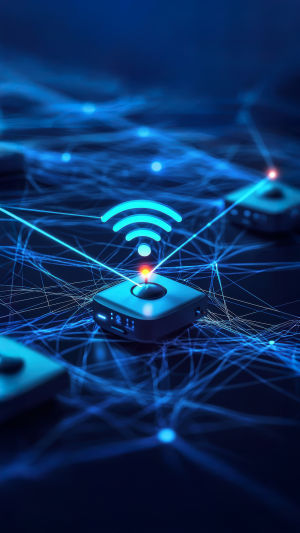Let's admit it, Lykkers—we all jump at free Wi-Fi, whether we're in a café, airport, mall, or hotel. It's convenient, it saves our data, and it feels harmless. But do you ever stop to think: is this Wi-Fi safe?
Public Wi-Fi can be a trap. If we're not careful, hackers can sneak in, steal our info, or even infect our phones and laptops. Don't worry though—we've got simple, smart ways to stay protected. Let's walk through them together.
<h3>1. Never enter sensitive info on public Wi-Fi</h3>
When we're using free Wi-Fi, we avoid typing passwords, banking details, or any private data. Why? Because public Wi-Fi is often unsecured, meaning others could be watching what we type or click.
If we must check something sensitive, we wait until we're on a secure network—like home Wi-Fi or mobile data. It's just not worth the risk.
<h3>2. Use a VPN—our secret weapon</h3>
A VPN (Virtual Private Network) creates a protected tunnel for our data. Even if someone tries to spy on us, they won't see anything useful.
We like using a reliable VPN app before connecting to any public Wi-Fi. It takes just a few seconds and adds a strong layer of protection.
<h3>3. Turn off automatic connections</h3>
Our phones often auto-connect to open networks without asking. That's dangerous. A hacker can easily set up a fake Wi-Fi hotspot with a name like “Free_Cafe_WiFi.” If we connect to it, they could gain access to our device.
To avoid this, we turn off auto-connect in our Wi-Fi settings. That way, we choose exactly which network to join.
<h3>4. Keep firewall and antivirus software on</h3>
We treat our devices like our homes—they need strong locks. A firewall helps block unwanted traffic, while antivirus software scans for anything suspicious. Make sure your device's built-in firewall is turned on. Also, keep your antivirus software updated so it can catch the newest threats.
<h3>5. Log out when you're done</h3>
When we finish using a public Wi-Fi network, we always log out of our accounts and disconnect from the network. This prevents any lingering connections from being used by someone else.
Also, we avoid using the same free Wi-Fi for long periods. The longer we stay connected, the higher the risk.
<h3>We're smarter now, right?</h3>
Lykkers, the internet is a great tool, but it can also be risky—especially when it's free. Now that we know these tips, we can stay one step ahead and protect ourselves without giving up the convenience of Wi-Fi.
Have you ever had a weird experience on public Wi-Fi, like pop-ups or slow speed? Or do you have your own way of staying safe online? Let us know! Let's keep each other informed and secure, one connection at a time.





